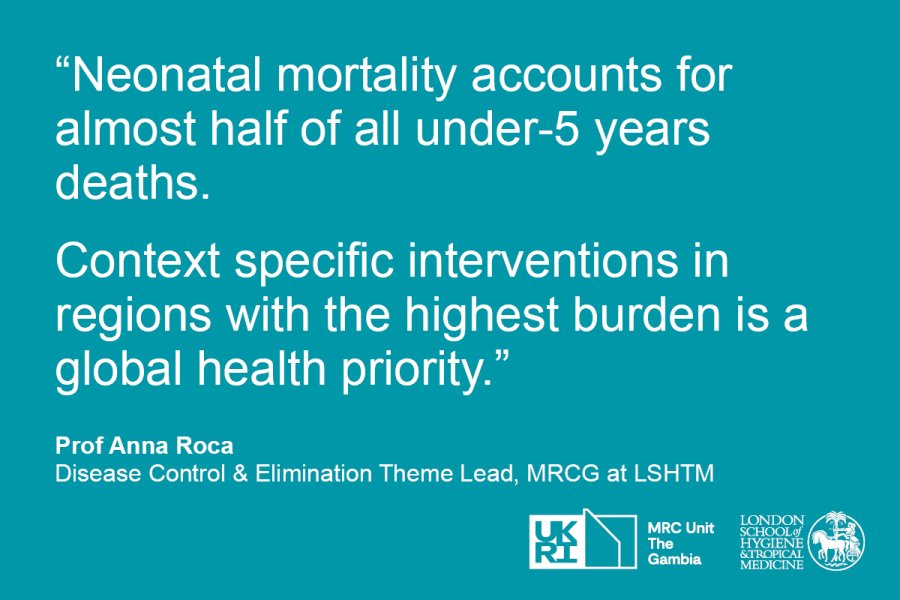
Researchers from the Medical Research Council Unit The Gambia at the London School of Hygiene & Tropical Medicine (MRCG at LSHTM) have published a new study in JAMA showing that there is no significant difference in the rates of sepsis or death in newborns when mothers were given a dose of azithromycin orally during labour versus a placebo.
Neonatal sepsis is a systemic infection in the first 28 days of life and a major cause of neonatal mortality, particularly in low and middle-income countries. Of an estimated 4 million related deaths occurring annually around the world, sepsis alone is responsible for over a third.
Sub-Saharan Africa has amongst the highest rates of newborn mortality, and interventions are urgently needed to tackle this.
“Neonatal mortality accounts for almost half of all under-5 years deaths. Context specific interventions in regions with the highest burden is a global health priority,” said lead author Prof Anna Roca.
“This clinical trial was an intervention that would be easy to implement and scale up in the West African region if it was successful,” she explained.
The researchers wanted to evaluate how potentially effective the antibiotic drug azithromycin was in reducing newborn sepsis or mortality in West Africa, alongside impacts on newborn and maternal infections.
“Intrapartum azithromycin research focussing on pregnancy outcomes for babies and mothers is relatively new,” said Dr Bully Camara who implemented the trial.
The trial enrolled birthing parents and their infants at ten health facilities across The Gambia and Burkina Faso between October 2017 and May 2021. 11,625 adults who agreed to participate were randomly selected to receive either a single dose of oral azithromycin or a placebo.
The researchers found that the rates of mortality or sepsis was similar across both the azithromycin and placebo groups, indicating the drug had no affect in reducing them..
Prof Umberto D’Alessandro, MRCG at LSHTM Unit Director and last author commented, “This suggests the sepsis is caused by pathogens that are not affected by azithromycin. It is now important to identify these pathogens to better target them.”
He added, “While it did not reduce neonatal sepsis and mortality, it had an effect on other bacterial infections, both in the mothers and their offspring.”
There were signficant reductions in other non-invasive infections. This included the reduction of breast infammation (maternal mastitis) and postpartum infections in the reproductive tract of mothers (puerperal fever) - the latter of which causes over 15% of maternal deaths in both The Gambia and Burkina Faso.
It also reduced skin infections in newborns by over 50%.
“These robust results showing a decrease of other infections for mothers and babies justify follow-up studies,” said Prof Roca.
Ultimately however, these results do not support routine introduction of oral azithromycin as an intervention to tackle newborn sepsis or mortality in West Africa.
“The findings are a significant literature contribution and will be critical for informing choices of future strategies and trial designs to test them,” concluded Dr. Camara.
LSHTM's short courses provide opportunities to study specialised topics across a broad range of public and global health fields. From AMR to vaccines, travel medicine to clinical trials, and modelling to malaria, refresh your skills and join one of our short courses today.
